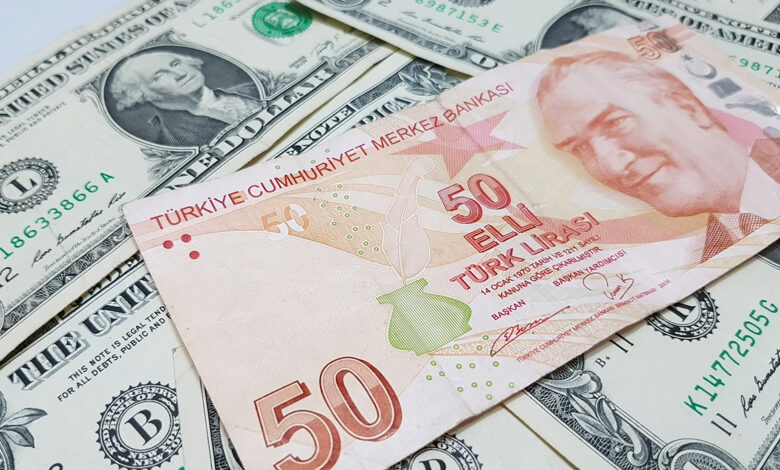Turkish lira moved to a low record versus the dollar, euro and pound

The lira moved to a low record versus the dollar, euro and pound on Monday in the presence of concern that Turkey could get more participate in a rapid-escalating conflict in the Caucasus, although last week’s surprise rate rise to support the currency.
Indeed, The Turkish lira reduced 2 percent versus the dollar and was close to the worst day since early August, when the latest session of selling started hitting the currency that has dropped in half to its value in less than three years.
The operation of the sale led to a rally late last week, when the central bank of Turkey surprisingly increased interest rates by 200 basis points to 10.25 percent, stretching policy for the first time in two years to stabilize the lira and resolve inflation. However, analysts who praised the monetary policy pivot declared that the currency faced new pressure after heavy fire between Armenia and Azerbaijan, in their worst confrontations since 2016. Turkey reported that it supports Azerbaijan.
Timothy Ash at BlueBay Asset Management said: Fears are that Turkey gets dragged into another regional conflict. The currency declined as far as 9.1416 versus the euro and 10.0974 versus the British pound.
Furthermore, the lira was also affected by the strength of the dollar, moving to a record low of 7.8325 by 1231 GMT – a decline of certain 24 percent from the end of last year.
Otherwise, the currency has been between the worst performers this year as the worries about Turkey’s spent forex reserves and clearly negative real interest rates and was now being affected by the growing geopolitical concerns.
Moreover, 21 people were almost killed on Monday in the second day of heavy confrontations between Armenia and Azerbaijan, while President Tayyip Erdogan reported that Armenia must immediately remove from Azeri lands that it’s occupying.
A treasury specialist at a Turkish bank declared that the movements by the central bank and banking regulator could improve the investor sentiment to the lira; however they were reduced by the geopolitical tension. The specialist said: We think the currency would have hit 8 versus the dollar without these steps due to tensions in neighboring Armenia and Azerbaijan.
The central bank, and until last Thursday’s rate rise, had appointed on other methods to retrain money supply, using liquidity measures and directing lenders to borrow at a higher rate. Turkey’s BDDK banking regulator reported on Monday that it was reducing deposit banks’ required asset ratio to 90 percent from 95 percent, which led to further easing a rule that effectively forced private banks to lend more and buy more government debt.
The BDDK increased on Friday the limits for banks’ foreign currency transactions with foreign entities, which allow increased access to the market. Turkey’s banking index was down more than 1 percent whereas the bluechip index BIST 100 was stable.












